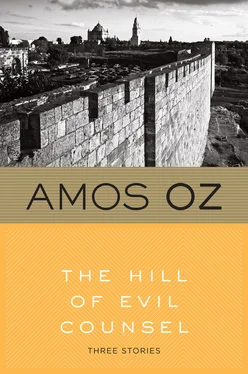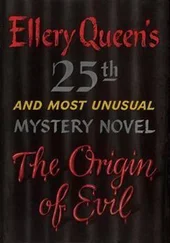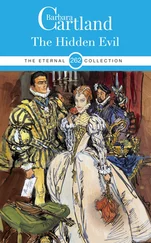She translated from Polish a story she had written on her fifteenth birthday. She copied it out neatly and told Hillel to read it aloud:
"The blue sea allows the sun's rays to draw up its water, to make clouds that look like dirty cotton wool, to pour down rain on mountains, plains, and meadows — but not on the ugly desert — and eventually all the water collects and has to flow back once more into the sea. To return to it with a caress."
Suddenly she fell into a rage, snatched the paper Out of the boy's hands, and tore it into shreds.
"All gone!" she cried with desperate pathos. "Dead and done for! Lost!"
Outside, a wintry Jerusalem Sabbath, windswept, lashed by dead leaves. Inside the little house in Tel Arza, the kerosene heater burned with a blue flame. On the table there was tea and oranges, and a vase of chrysanthemums. Two of the walls were lined with Father's books. Shadows fell on them. The wind howled from the wadi. Mists touched the outside of the window, and the panes rattled. With a kind of bitter mockery. Mother spoke of her childhood in Warsaw, rowing on the Wisla, playing tennis in white clothes, the Seventh Cavalry Regiment parading down the Avenue of the Republic every Sunday. Occasionally she turned abruptly to Father and called him Dr. Zichel instead of Dr. Kipnis, Hans, Hanan. Father would rest his fingers on his high brow, unperturbed, unsurprised, silently smiling at the recollection of the acute remark he had made in Zichel's Café to the writer Agnon and the philosopher Buber. They had both been delighted; they had consulted him about the strawberry ice cream, and even complimented his companion.
When Mother was sixteen, she allowed the handsome Tadeusz to kiss her at the bridge: first on the forehead, later on the lips, but she let him go no further. He was a year and a half younger than she, an elegant, handsome youth, without a trace of acne, who excelled at tennis and sprinting. Once he had promised her that he would love her forever. But forever at that time seemed to her like a small circle bathed in pleasant light, and love like a game of tennis on a clear blue Sunday morning.
Handsome Tadeusz's father had been killed in the Polish war of independence. Tadeusz also had a cute dimple when he smiled, and wore sports shirts all through the summer. Mother loved to kiss Hillel suddenly on his own dimple and say:
"Just like this one."
Every year, on the national holiday, Ruth and Tadeusz would both stand on a decorated stage in the school playground. Old chestnut trees spread their branches overhead like a rustling bridal canopy. Tadeusz's task was to light the Torch of Liberty — the same liberty for which his father had given his life. Pupils and teachers stood in serried ranks, frozen in a strained silence, while the wind toyed with the flags of the Republic — no, don't touch the photograph — and Ruth recited the immortal lines by the national poet. Bells rang out joyously from atop every church in Warsaw. And in the evening, at the ball at the home of the director of the opera house, her parents permitted her to dance one waltz with General Godzinski himself.
Then Zionism broke out. The handsome Tadeusz joined the National Youth Corps, and because she refused to spend a weekend with him at his aunt's in the country, he sent her a disgusting note: " Zidoivka. Dirty Jewess." The old teacher who was fond of the phrase "singing gazelles" died suddenly of a liver disease. And both her parents, too, in a single month. The only memento she had left was the sepia photographs, printed on thick card stock with ornamental borders.
Nyuta, her elder sister, quickly found herself a widowed gynecologist named Adrian Staub. She married him and went with him to New York. Meanwhile, Mother came to Palestine to study ancient history on Mount Scopus. She took a small room at the end of the world, in the suburb of Neve Sha'anan. Nyuta Staub sent her a modest allowance every month. In that room she was loved by several wonderful men, including, one Hanukkah festival, the furious poet Alexander Pan.
After a year, she felt defeated by the country and the language, and decided to join her sister and brother-in-law in New York. Then Dr. Ruppin introduced her to Father, and he told her shyly about his dream of setting up a cattle farm in the hills of Galilee with his own hands. He had a fine Galilean smell. She was desperately tired. And the Aurora changed course, sailed to the West Indies, and never reached Haifa.
To the northeast, in the white summer light, one could see Mount Scopus from the window of the house in Tel Arza, crowned by a marble dome, a wood, and two towers. These lonely towers seemed from a distance to be shrouded in a kind of veil of solitude. At the end of the Sabbath the light faded slowly, hesitantly, poignantly:
As though forever. And as though there were no going back.
Father and Mother used to sit facing each other in the room that Father called his study. The celebrated geographer Hans Walter Landauer gazed down skeptically on them from his large portrait. And their pudgy son built complicated brick castles on the mat, demolishing each suddenly with a wave of his hand because he always wanted to build a new one. At times he would ask an intelligent question of his father, and he always received a considered reply. At other times he buried his face in his mother's dress, demanded to be cuddled, and then, embarrassed at seeing her eyes fill with tears, returned silently to his game.
Sometimes Mother asked:
"What's going to happen, Hans?"
And Father would answer:
"I confidently hope that things will take a turn for the better."
As Father uttered these words, Hillel recalled how last Pentecost he had gone out with his friends to hunt lions or discover the source of the Nile in the woods of Tel Arza. He recalled how a faded golden button had suddenly flashed at him, and blue cloth, how he had knelt down and dug with both hands, tearing away the pine needles, to uncover the treasure, and found a rotting military tunic, a terrible, sweet smell coming from the tarnished gold, and how as he went on digging he had discovered white ivory among disintegrating buckles, large and small white tusks, and all of a sudden the ivory was attached to an empty skull that smiled at him with a kind of chilling affection, and then the dead teeth and the eye sockets. Never, never again would he search for the source of the Nile anywhere. Never.
On weekdays Father traveled around the villages wearing khaki trousers, sandals, a neatly pressed blue shirt with wide pockets stuffed full of notebooks and writing pads. In winter he wore brown corduroy trousers, a jacket, a cap, and over his shoes he wore galoshes that looked like twin black warships.
But on Sabbath Eve, after his bath, he would appear in a white shirt and gray trousers, his damp hair combed and neatly parted, smelling of shaving lotion and almond-scented soap. Then Mother would kiss him on the nose and call him her great big child. And Hillel would laugh.
Every morning, a bib with a picture of a smiling rabbit was tied around Hillel's neck. He ate Quaker Oats, a soft-boiled egg, and yogurt. On the Quaker Oats package was a wonderful picture of an admiral with a bold and resolute look on his face, a three-cornered Napoleon hat on his head, and a telescope in his only hand.
In Europe at that time, there was a world war going on. But in the streets of Jerusalem, there were only singing bands of friendly soldiers, Australians, New Zealanders, Senegalese looking like chocolate-cream soldiers, lean Scots wallowing in beer and homesickness. The newspapers carried maps with arrows. Sometimes, at night, a long military convoy crossed Jerusalem from north to south with dimmed headlights, and a smothered roar seemed to sound in the darkness. The city was very still. The hills were hushed. The towers and domes looked thoughtful. The inhabitants followed the distant war with anxiety but without any passion. They exchanged conjectures and interpretations. They expected a change for the better that would surely come about soon and might even perhaps make itself felt in Jerusalem.
Читать дальше











